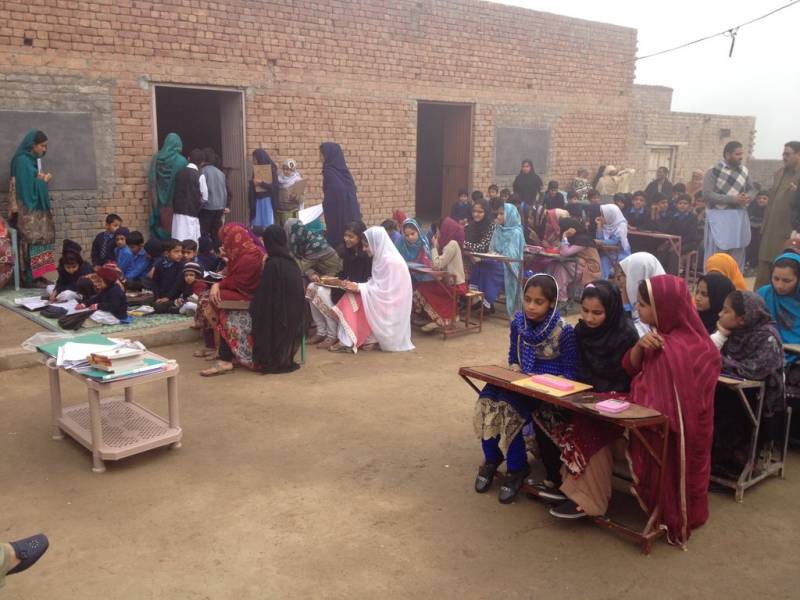
Pakistan's rich cultural heritage and colourful customs weave a unique tapestry that beckons the world with promises of unrealized potential and endless opportunities. Yet, two essential components, curriculum and pedagogy, lie at the heart of the country's educational system, steering its aspirations for progress. The synergy between these pillars is key to unlocking Pakistan's educational potential, shaping the minds and character of its youth.
It is disheartening to admit that Pakistan's educational system is in turmoil, plagued by multiple issues that demand immediate attention. Quality education is one of the United Nations' 17 Sustainable Development Goals to be achieved by 2030. Like other nations, Pakistan's social, economic, and political progress is profoundly affected by the quality of its education system.
Factors such as lack of access to quality education, gender disparities, outdated curriculum, teacher quality concerns, and inadequate funding hinder the nation's prospects.
Bertrand Russell astutely noted, "More important than the curriculum is the question of the methods of teaching and the spirit in which the teaching is given." Curriculum, defining what students should learn, and pedagogy, encompassing the techniques and strategies used to teach them, are the two crucial components of the educational system.
Unfortunately, research by the Sustainable Development Policy Institute (SDPI) has found that Pakistan's curriculum places excessive emphasis on rote memorization, leaving little room for students to develop analytical and creative skills.
First and foremost, the curriculum serves as a blueprint for students' academic journey, ensuring they acquire knowledge and skills to thrive in a rapidly changing world. However, Pakistan's curriculum has been criticized for excessive rote memorization, outdated content, and a lack of relevance to real-life situations. These shortcomings fail to meet the needs of students and society. The curriculum should be a tool in the hands of teachers to mold their material according to their ideas, but this principle often remains unrealized.
Pedagogy relates to the practical techniques and strategies employed by educators to impart knowledge and promote learning. Effective teaching should be engaging, student-centered, and attuned to learners' needs.
However, Pakistan often favors traditional, teacher-centered approaches, perpetuating a culture of rote learning, leading to a mismatch between stated curriculum objectives and pedagogical strategies.
A report by the British Council's Punjab Education and English Language Initiative (PEELI) highlights that 94% of Pakistan's primary and middle school teachers lack the English language proficiency needed to provide quality English-language education.
Modernising and updating the curriculum is a crucial step in bridging the gap between pedagogy and curriculum in Pakistan. The curriculum should reflect the needs of society and the job market, incorporating practical skills and abilities required for success in the twenty-first century, including critical thinking, problem-solving, computer literacy, and communication skills.
To improve Pakistan's education system, research needs more investment, as it opens new avenues for advancement. Teacher training and professional development are vital, enabling teachers to employ contemporary teaching techniques that foster student participation, critical thinking, and active learning.
Assessments should be reformed, moving beyond memory-focused, high-stakes tests to incorporate project-based assessments, formative evaluations, and practical applications of knowledge.
Technology must play a significant role in closing the gap between pedagogy and curriculum. Interactive educational technologies, digital materials, and online learning environments can enhance teaching and learning. These technologies can also improve access to education for children in rural areas.
Community involvement is another critical aspect. Parents and communities should be encouraged to participate in the educational process, providing resources, support, and an environment conducive to learning.
Government support is pivotal. Adequate funding and resources should be allocated for curriculum development, teacher training, and infrastructure upgrades. Long-term, consistent educational policies that promote advances in pedagogy and curriculum should be created and implemented by legislators.
Closing the gap between Pakistan's curriculum and pedagogy is essential. Collaboration among all stakeholders, including legislators, teachers, parents, and communities, is necessary to provide students with a more relevant and effective education. Updating the curriculum, providing teacher training, reforming assessments, integrating technology, and engaging the community will help Pakistan progress and meet the demands of the modern world.

